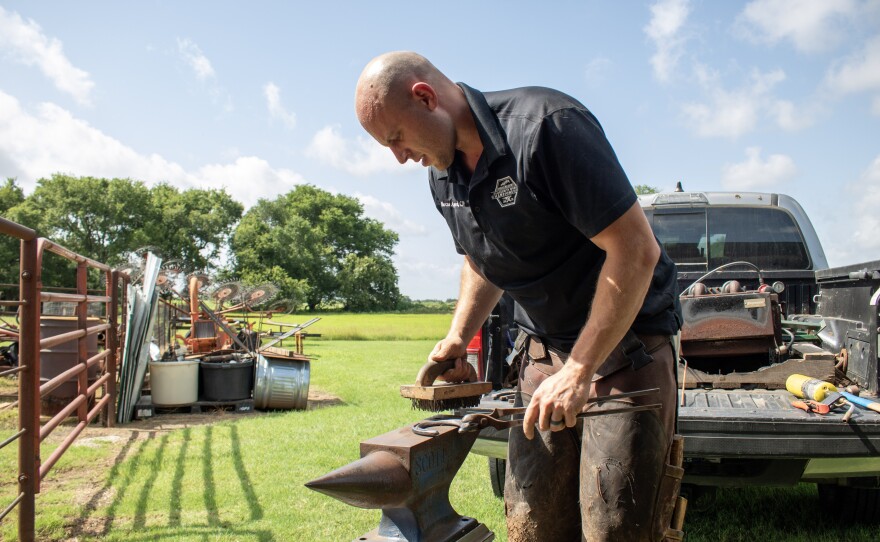Want to stay informed? Sign up for our weekly newsletter now.
When President Donald Trump doubled tariffs on imported steel and aluminum, that didn’t just affect factories. It also impacted specialty workers like farriers – the people who shoe and work with horse hooves.
“No foot no horse” is the mantra farriers live by said Marcus Appleyard. He’s been making his living as a farrier in Central Texas for five years.
In that time, he’s only raised his prices once – about two years ago.

But it’s getting more expensive to be a farrier, according to the Farrier Industry Association. Steel and aluminum tariffs are increasing prices. A full set of horseshoes costs an estimated $15 to $25 more than it did last year.
Appleyard makes his own horseshoes, but he’s also impacted by the rising price of steel.
He said he’s seen the raw steel prices increase “at least 10% or so, just in the last few months.”
This is even though much of the steel being sold right now was not purchased at the tariffed price.
“So you see, all of a sudden, a price increase because they’re going to speculate that something’s going to increase,” Baylor Professor of Supply Chain Management Pedro Reyes said.
Reyes said it could be months before any tariffed goods arrive in the U.S. Until then, there’s no way to know what the full effect on prices will be or when it will hit.
This leaves farriers like Appleyard thinking about how much he charges.
“I don’t think I’m at the worried stage yet, but I definitely think if it were to go up by, you know, 50% … It’s definitely something I’ll have to consider,” Appleyard said.
For now, Appleyard said he won’t be raising prices. But he probably won’t see the cost of that decision for a couple months.

“You look at the books and you realize, ‘I’m not quite making what I was before, but I’m doing more horses. How does that work?,’” Appleyard said.
And for most people, horses are luxuries. He worries about losing clients if he raises his prices, especially with ongoing inflation.
“When times get tough, people cut out luxuries,” he said. “It starts with ‘oh, something came up with the truck or my kid has a medical thing, can we push [the horse] back a few weeks?’ And then it’s ‘oh, we made the decision to sell the horse.’”
Still, Appleyard said there will always be work for him.
“People will always need a farrier,” he said. “(I just) might have to work more and make less.”
For now, he’ll take it one hoof at a time.
Got a tip? Email Molly-Jo Tilton at Molly-jo_tilton@baylor.edu.
KWBU is made possible through the generosity of our members. If you find this reporting valuable, consider making a tax-deductible gift today. Thank you.




